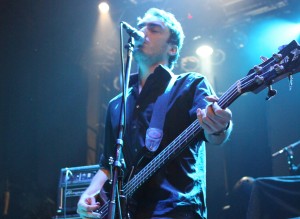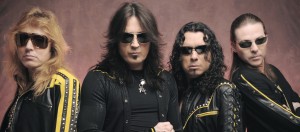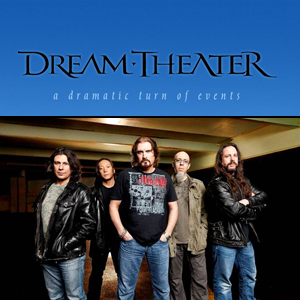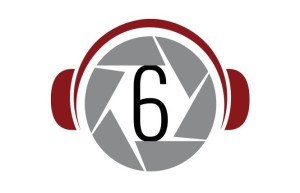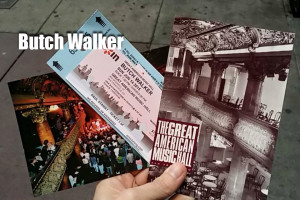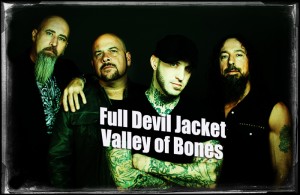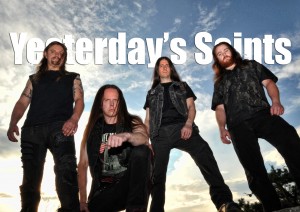"One Half of Outkast, One Whole of Me": A Conversation With Big Boi
13 min read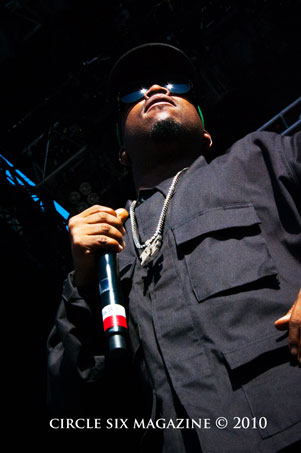
 When Outkast hit the music scene in the 90’s – Hip Hop was already steeply rooted into the music culture – a culture that once rejected it and labeled it a trend that would never last. But as Hip Hop has persevered and continues to be a viable force – the arrival of Outkast (and other artists) – served notice that the music world is always poised and ready for more diversity than the one we were used to seeing. In essence, the new voices out of the South and Midwest help to usher in a new era that was less entrenched in a battle of good versus evil and of East versus West, but more about the story of America. If you want to know what it is to study American culture, one only need to listen to the voices of its poets and artists. Thankfully artists like Big Boi aren’t afraid to tell you what they think. In fact, they want you to dive in.
When Outkast hit the music scene in the 90’s – Hip Hop was already steeply rooted into the music culture – a culture that once rejected it and labeled it a trend that would never last. But as Hip Hop has persevered and continues to be a viable force – the arrival of Outkast (and other artists) – served notice that the music world is always poised and ready for more diversity than the one we were used to seeing. In essence, the new voices out of the South and Midwest help to usher in a new era that was less entrenched in a battle of good versus evil and of East versus West, but more about the story of America. If you want to know what it is to study American culture, one only need to listen to the voices of its poets and artists. Thankfully artists like Big Boi aren’t afraid to tell you what they think. In fact, they want you to dive in.
C6M’s Craig Shannon caught up with Big Boi during Epicenter 2010 to ask him about his thoughts on culture, hip hop’s future and the future of Outkast. What did he have to say? Read on.
C6M: So, how has it been going so far for today?
Big Boi: It’s been going good man.
C6M: Having fun?
Big Boi: Yeah man, having fun man, you know, we came straight off the bus from Vegas.
C6M: Yeah, what were you doing in Vegas? Just chilling or performing?
Big Boi: Yeah, we had a show last night at Palms, then had a date with a Blackjack dealer.
C6M: A date with a blackjack dealer?
BigBoi: Yeah.
C6M: So, Big Boi, I’m here with Circle Six Magazine. If I can just get you to introduce yourself, tell me who you are.
Big Boi: This is Big Boi, you know what it is, one half of OutKast, one whole of me, Sir Lucious L. Leftfoot, yeah.
C6M: Word. So, if I can ask you like, I’m really interested in where you grew up, like living in Georgia and moving into like this music scene, like how did Georgia affect your choice musically or like professionally, like where did you sort of — how did your root sort of drive you into what you do now?
Big Boi: Well, I grew up in Savannah, Georgia on the coast, I’m a beach boy, just my family was really into music, you know what I’m saying? I mean they had some music collections and I just was around it my whole life. When I moved to Atlanta and I hooked up with Dre, we had similar musical taste and the songs and stuff I’ve been doing, and formed our group, OutKast, and this is really all about making music that people can feel. I love to listen to every type of music that there is to imagine. So, that’s why I made this album, music have no boundaries, because we never discriminate against music, whether it’s Johnny Cash or Janis Joplin or Led Zeppelin or N.W.A or UGK or Kate Bush, Bob Marley, so everything. The musical influence was so vast, so you take advantage of the sound.
C6M: Yeah man, I found it interesting, like I grew up in a big punk scene when I was growing up back on the East Coast, and I’ve always found hip-hop to be like sort of the — in some ways like the revitalization of punk, like it’s very similar in terms of what the message is and like what you’re going for. Do you see any similarities in your music and the musical like crossover of what you’re doing? Like how would you define that? Like do you feel more punk in your music like outside of rap or outside of hip-hop?
Big Boi: I guess I mean the rebellious aspect of being punk. Punk was very like in your face, like “We don’t care. We’re going to do it like this,” you know what I mean? It was the voice of the youth, you know what I mean? So, growing up, telling stories of where you’re from, and kind of giving like a first hand take on life and talking about your experiences, and hip-hop being an art form that they said it wasn’t going to last, and the youth took it and took it global. So, now, I could see the similarities, and it’s that rebellious music that your mom and your dad, they don’t want you to listen to, but they now enjoy it.
C6M: Yeah, and so how was it — like working with Dre…or Andre for OutKast, like how was it — it must be pretty different coming into your own scene, like doing your own work, like did you find compromises when you were working with Andre to like get sort of for OutKast like making an album and then going into your own thing, like you feel more free? Like what are your perceptions on like working with the group and working individually?
Big Boi: With us, it’s always been — any time you’ve got two or more people, there’s going to be — it has to be some sort of compromise. You know what I mean? That’s what being a group or a couple or duo is all about, you know what I mean? So, the biggest difference in just being just solo and then being in a group is, I guess, I have to say the writing load, you know what I mean, because you’re responsible for all of the writing, you know what I mean, where me and Dre will write songs together, like now I’m writing total whole songs all by myself, which I’ve done, you know what I’m saying, on OutKast records and things like that. So, it’s not really a big difference, you know what I’m saying?
C6M: Yeah, you’ve felt that you’ve been able to express yourself equally for between…
Big Boi: Oh definitely, oh yeah, yeah, hell yeah.
C6M: So, what was the logic behind releasing your new album Sir Lucious Leftfoot, like with Dre’s album, like instead of package those together, like two solo albums together, like…?
Big Boi: With the new one?
C6M: Yeah.
Big Boi: No, no, no just they were going to stand alone. We did Speakerboxxx/The Love Below together, so this time we wanted to break it all the way down, and then you get my record first, and then you get Dre’s record after that. So, it was just to give the fans a more up, close and personal in-depth look into my mind and what I think about music and how I feel and what my life is doing right now.
C6M: Okay, great. So, I’d like to ask you about the — when you’re writing a song and you do — there’s a difference between like writing subliminal lyrics versus overt lyrics like “Somethings Gotta Give” with Mary J. Blige is very like overt song. It’s very much about America and like the presidency and like healthcare and all that. Like how do you decide whether or not you want to write something that’s maybe a little more — you have to do a little digging to get the meaning out versus like just being out front and like writing on the surface with what you feel?
Big Boi: It just depends on the song. When you call for a song like “Somethings Gotta Give,” it was specifically for the purpose of getting people to go to the polls to vote. You know what I mean? It wasn’t really necessarily supposed to be on my album, that’s why it’s not on the record. But it was like — just to get people to the polls man, and you know, I feel like if you have the world as your stage and you got so many sets of ears all over the globe, it’s necessary to educate as well as entertain. So, some songs are going to be about specific things, such as political government issues like war. Speakerboxxx/The Love Below and songs like “Somethings Gotta Give”, and then you’re going to have other records that are not going to be so in your face, where you have to kind of dig and decipher what I’m saying. It’s easy to put in their face when you’re just trying to give kind of a direct message, but when I’m writing songs, I kind of like to be kind of tricky a little bit, get them to listen and thinking and things like that.
C6M: Alright, so you know, on your last couple of albums, I felt that there was definitely a transition for you personally like as an artist, from rhyming and singing. Like can you comment on that? Can you comment on like what it’s like kind of bridging that gap between just being straight out like rhyming and rapping and being more of a singer?
Big Boi: Okay. Well, I’ve been actually rhyming and singing since the first record, you know what I’m saying? I mean songs like”Player’s Ball” and like “Elevators,” and there’s not really so much singing, and it’s just I call it my melodic funk boat. You know what I mean? It’s just — it’s all about feeling certain songs bring that out of you. There are just certain melodies that you get and certain ways that you write to them. So, I feel it’s necessary to use all aspects of your talents, like being a writer, a producer, a singer, a songwriter, you really have a lot to play with if you can do all of those things. I just use every piece of what I got and go to sync at it.
C6M: Right, right, right. In terms of videos, I was watching a video for you with “Shutterbug“ off of your Lucious Leftfoot album. How do you choose somebody who can like conceptualize your music visually, like how do you go about that, like do you want the video to reflect your music or do you want to be something different or…?
Big Boi: Yeah, no I definitely want that the video is supposed to bring to life what the song does, you know what I mean? I guess like the music would be the soundtrack, and then to actually paint that picture, it has to be directed as kind of in sync with what you’ve been doing. I had the privilege of working with Chris Robinson before when we did the movie ATL, and I’ve been knowing him for a long time. He’s always been a fan of our music, and so when I called him and told him about the song, he was just like, “I already got the idea.” You know what I mean? I just wanted it to be a psyched up funky trip like the song is. It’s all about colorful energy, vibrant emotion and funk – got to keep it funky.
C6M: So, did he like pitch something to you that made you just go, “Okay, great, that’s what I want for this video.”
Big Boi: That’s exactly what he did. He pitched it to me, he was like, “This is what I want to do,” and I was like okay.
C6M: How was it getting shot in the face with the chopped up pieces of…?
BigBoi: That was crazy man. I mean the first take, Idon’t know how much pressure they have with confetti. They blast me in the face, it was all up under my face and my face was stinging, but it looked good on camera.
C6M: Yeah.
Big Boi: So, you know, sometimes you make a sacrifice.
C6M: Okay, good, and I’d like to ask you a little more back to what we were talking about like subliminal lyrics versus the overt lyrics. Your musical views in terms of politics and current affairs, like I feel like there is a very strong trend in your music that sort of comments on current things, like very, very current — like be political or trends or whatever, like where does that come from? How do you like — when you write lyrics that reflect on current trends, is that something that like you’re upset about or something that you just want to comment on?
Big Boi: Yeah, it means there might be things you want to comment on. Albums are like time capsules and it’s like the diary in a sense to where they capture the essence of your life from the last time that the listener heard you. So, anything I talk about is going to be something I’ve been going through or something I think or it might be sometimes — like I said, it might be something that I might be like, “I don’t like that shit and I want to write about it.” You know what I mean? So, it’s just about your first hand experiences and giving your take on life. It’s not always just about just fans and just rhyming just for the sake of rhyming, like what are you talking about, you know what I mean? So, it has to be some sort of subject matter in there somewhere.
C6M: So, how do you feel that that difference between what you’re writing for music now versus what a lot of hip-hop is right now? Do you feel that there is a different trend in music, like do you think that what you’re writing is different from what’s on the scene right now in terms of hip-hop and rap?
Big Boi: Definitely. I mean there are artists that write about current affairs or just maybe relationships or whatever they’re rapping about, I mean, but for the most part everybody is talking about partying and basically money, you know what I mean? So, I mean how many songs can you make about that shit? Like you just got to expand and talk about songs that people — somebody else can relate to, sometimes.
C6M: Understandable. And can I ask you — is it wrong for me to ask you about the future of OutKast? Are you planning on going back?
Big Boi: No, no, cool. Dre is finishing his record. He should be done with his album, and when that is done, the album is done, we’re going to start the OutKast record.
C6M: Any comments on that record, like where you want to see, where you want it to go or what you think it’s going to be or…?
Big Boi: Top secret, ancient Chinese secret, I can’t tell you [laughter].
C6M: Alright, so don’t worry, I’m not going to push you too far. Can I get you to comment on this story, like coming to epicenter, what have you been doing in the past, like how has touring this year maybe been different from touring past years or like what is your general gist of being on the scene now?
BigBoi: The crowds are way, way bigger. It’s been a lot of love. We’ve been doing anywhere from 1500 people to 35,000 people, you know what I mean? So, I’ve been doing a lot of festivals in Europe and Australia, touring arenas and things like that. So, it’s just like really just touching everybody, you know what I’m saying? No venue is too small or too big for us to rock at. We’re going to leave no stone unturned. It’s always been a blast when you’ve got to end of the road, and it’s nothing more different now. It’s just a lot of fucking — a lot of energy, a lot of fucking energy man, and they dig the music. They want to hear — they expect me to play my whole new album, the whole album, so I’m giving them like eight songs off the album, maybe eight or nine and then mixing it up — like the whole gang of hooks — like hit records from OutKast catalog. So, it’s like a hour, 10 or 15 minutes of nothing but high octane energy pushup.
C6M: So, I mean that’s interesting — you bring up an interesting point like you being a solo artist versus being part of OutKast. Like how have you juggled that, how have you juggled going onto doing this individually versus like being part of events?
Big Boi: It’s been pretty much a natural transition. We’ve actually been touring — together we toured for like the first — from 95 to like 2001 or 2002 or something like that, and it’s just like maybe 2002 to now, I’ve been kind of touring by myself, a Dre is not on the road anymore. So, it’s been just good man. It’s been a lot of cardio, a lot of fun, got the same band, horn players, guitar players, cut masters, swivel on the Wheels of Steel and it’s just like you know, you got records that they’re going to hear. It don’t matter where you at, they’re going to get up, they’re going to move, they’re going to put their hands up, they’re going to say “Yeah.” They’re going to say “Hell, fuck yeah” and they’re going to have a good time, and they’re going to leave wanting some more, you know what I’m saying? Like after every show it was always, “Big Boi, Big Boi!” So, I come out and give them an encore, drop the mike and I walk off, that’s it.
C6M: Awesome. Well, it was a pleasure talking to you. I just want to ask you if you have any other shout-outs or anything you want to give for…?
Big Boi: Oh yeah, most definitely man. To all the readers and fans out there, go to BigBoi.com for all the things BigBoi. We’re dropping exclusive music. We’ve got all kind of updates. You’re going to know where I’m at, at all times, tour dates and etcetera, the Twitter account is Therealbigboi. Yeah, and Pitfall Kennels, breed dogs all day long, we got the dogs, www.pitfallkennels.com and we’re at you.
C6M: Right, thank you so much man.
We want to thank Big Boi for taking time out of his day to sit down and give us his candid thoughts. It was certainly proof that music really knows no boundaries when it is spoken with honesty. As always, you can sample Big Boi on grooveshark.com. And if you like it don’t forget to buy the new album, Sir Luscious Leftfoot: Son of Chico Dusty and support the good music and the artists who create it.
